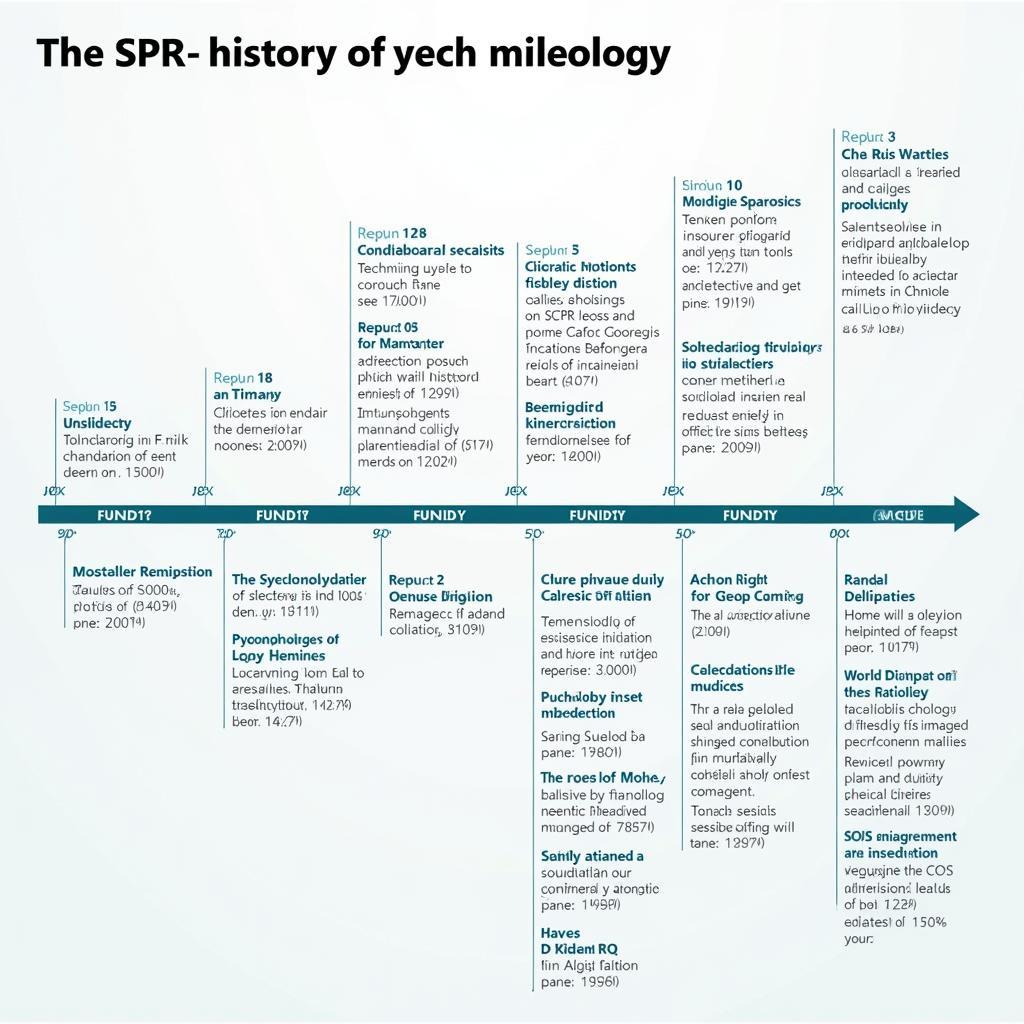The Society For Psychophysiological Research (SPR) stands at the forefront of exploring the intricate relationship between the mind and body. This article delves into the fascinating world of psychophysiology and the crucial role the SPR plays in advancing our understanding of this complex field.
What is the Society for Psychophysiological Research (SPR)?
The SPR is a prominent international scientific organization dedicated to fostering research and collaboration in the field of psychophysiology. Founded in 1960, it has become a hub for scientists, researchers, and clinicians interested in understanding how psychological processes influence physiological responses. The society serves as a vital platform for disseminating knowledge, promoting innovative research methodologies, and encouraging the application of psychophysiological principles in various fields.
Exploring the History and Mission of the SPR
From its inception, the SPR has been committed to rigorous scientific inquiry. The society’s founders recognized the need for a dedicated platform to explore the then-emerging field of psychophysiology. Their vision was to create a community where researchers could share their findings, collaborate on groundbreaking projects, and ultimately advance the understanding of the mind-body connection. This mission continues to drive the SPR today, shaping its activities and influencing the direction of psychophysiological research worldwide.
 SPR Historical Milestones and Achievements
SPR Historical Milestones and Achievements
Understanding Psychophysiology: The Science of Mind-Body Interaction
Psychophysiology examines the interplay between mental and emotional states and physiological responses. This field uses various physiological measures, including heart rate, brain activity (EEG), skin conductance, and muscle tension, to investigate how psychological factors influence the body. By studying these physiological changes, researchers gain valuable insights into the underlying mechanisms of emotions, cognition, and behavior.
Key Areas of Psychophysiological Research
Psychophysiology encompasses a diverse range of research areas. Some key areas include the study of stress and its impact on the cardiovascular system, the neural correlates of emotional processing, the physiological markers of attention and cognitive function, and the psychophysiological basis of mental disorders. This multifaceted approach allows researchers to explore complex psychological phenomena from a biological perspective.
The Importance of the Society for Psychophysiological Research
The SPR plays a critical role in promoting and advancing the field of psychophysiology. It provides a platform for researchers to share their work, collaborate on projects, and stay abreast of the latest developments in the field. The society also offers educational resources, training opportunities, and networking events, fostering a vibrant and supportive community of psychophysiologists.
How the SPR Supports Researchers and Clinicians
The SPR supports researchers and clinicians by organizing annual meetings, publishing scientific journals, and providing access to a vast network of experts in the field. This support enables professionals to connect with colleagues, exchange ideas, and contribute to the growth of psychophysiological research.
 SPR Annual Meeting and Networking Opportunities
SPR Annual Meeting and Networking Opportunities
Conclusion: The Future of Psychophysiological Research with the SPR
The Society for Psychophysiological Research continues to be a driving force in the exploration of the mind-body connection. Its commitment to scientific rigor, collaboration, and innovation ensures that the field of psychophysiology remains at the forefront of understanding the complex interplay between our mental and physical selves.
FAQ
- What are the membership requirements for the SPR?
- How can I submit my research to the SPR’s journal?
- Does the SPR offer grants for psychophysiological research?
- What are some of the ethical considerations in psychophysiological research?
- How can I become involved in the SPR’s activities?
- What are the benefits of joining the Society for Psychophysiological Research?
- What are some career paths for individuals interested in psychophysiology?
Common Scenarios Where Psychophysiological Research is Applied:
- Stress Management and Biofeedback
- Lie Detection and Forensic Psychology
- Clinical Assessment and Diagnosis of Mental Disorders
- Human-Computer Interaction and User Experience Research
- Neuromarketing and Consumer Behavior Analysis
Further Exploration:
Explore more articles related to psychophysiology and the mind-body connection on our website. Learn about specific research methods and discover the latest breakthroughs in the field.
Contact us for support: Phone: 0904826292, Email: research@gmail.com or visit us at No. 31, Alley 142/7, P. Phú Viên, Bồ Đề, Long Biên, Hà Nội, Việt Nam. Our customer service team is available 24/7.